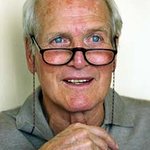United Nations Secretary-General Ban Ki-moon has designated Grammy Award-winning songwriter and musician Stevie Wonder as a United Nations Messenger of Peace with a special focus on people with disabilities.
Recognized for his ability to focus attention on and mobilize support for civil and human rights issues, Stevie Wonder joins ten other United Nations Messengers of Peace who advocate on behalf of the Organization.
Messengers of Peace are individuals who possess widely recognized talents in the fields of art, academia, literature, sports and entertainment, helping to raise worldwide awareness of the Organization’s ideals and activities. Through their public appearances, contacts with the international media and humanitarian work, they expand public understanding of how the United Nations helps to improve the lives of people everywhere.
In selecting Stevie Wonder for this designation, the Secretary-General said, “Our newest Messenger of Peace is someone who is admired by millions of people and has given back to millions of people. I recognize that he has consistently used his voice and special relationship with the public to create a better and more inclusive world, to defend civil and human rights and to improve the lives of those less fortunate. Stevie Wonder is a true inspiration to young people all over the world about what can be achieved despite any physical limitations.”
Stevie Wonder’s activism has been pivotal in United States and world events. In 1983, he spearheaded a campaign to make Martin Luther King Day a national holiday in the United States. He also advocated for ending apartheid in South Africa.
Stevie Wonder has been recognized for his philanthropic efforts which include the United States President’s Committee on Employment of People with Disabilities, the Children’s Diabetes Foundation, Junior Blind of America and the creation of the Wonder Vision Awards Program. For over 10 years, he has provided toys for children and families in need with his annual House Full of Toys benefit concert.
His career as a recording artist has reflected his concern with humanitarian issues. He has written, produced and/or performed songs relative to charities in support of disabilities, aids, cancer, diabetes, hunger and homelessness, domestic abuse and many other causes on behalf of children and adults. Some of these charities include institutes for the blind, such as the Royal National Institute of Blind People, for which Stevie Wonder launched the British Telecom Celebrity Eyes phone card. He has also supported We Are the World, That’s What Friends Are For, City of Hope, Special Olympics, Nobody’s Child: Romanian Angel Appeal, Charge Against Hunger Campaign and Tour, Live 8, September 11, 2001 America: A Tribute to Heroes, Andre Agassi's Grand Slam for Kids, Paul Newman's Hole in the Wall Gang, The United Negro College Fund, the Michael J. Fox Foundation for Parkinson’s Research, and many more. On behalf of people who are blind or have low vision, Stevie Wonder released the first-ever descriptive music video entitled, “So What the Fuss”. His second descriptive music video, “Shelter in the Rain”, was a healing message of love and inspiration to those who were touched by Hurricane Katrina. Net proceeds from this song were donated to Hurricane Katrina relief efforts.
The other Messengers of Peace and their areas of focus are: conductor Daniel Barenboim (peace and tolerance); actor George Clooney (peacekeeping); author Paulo Coelho (poverty and intercultural dialogue); actor Michael Douglas (disarmament); primatologist Jane Goodall (conservation and environmental issues); violinist Midori Goto (Millennium Development Goals and Youth); Princess Haya Bint al Hussein (Millennium Development Goals and hunger); cellist Yo-Yo Ma (youth); actor Charlize Theron (ending violence against women) and Nobel Laureate Elie Wiesel (human rights).
Source: United Nations






